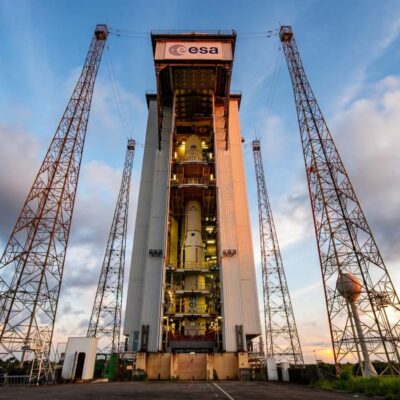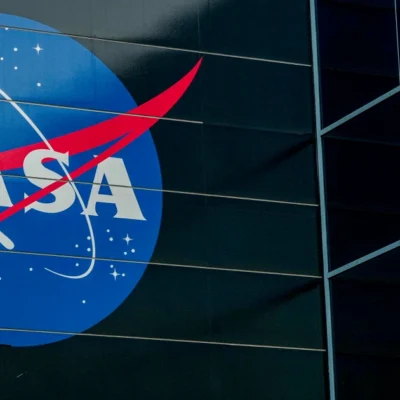French startup U-Space has secured €24 million (approximately $27.8 million) in Series A funding to expand its role in the rapidly growing small satellite manufacturing sector. The Toulouse-based company aims to scale up production capabilities to meet the increasing global demand for smallsats, a critical component in modern satellite constellations supporting communications, Earth observation, and defense applications.
The investment round, announced on November 12, marks a significant step forward for U-Space’s ambitions to establish itself as one of Europe’s leading satellite manufacturers. The funding was led by Blast’s Definvest fund, managed by Bpifrance on behalf of France’s Ministry of Armed Forces, alongside Expansion Venture Capital. Additional investors include Primo Capital, Karot Capital, ARIS Venture Capital, and Vertech Finance.
Scaling Toward Industrialized Satellite Production
With this new capital, U-Space plans to expand both its production capacity and software capabilities, with the goal of manufacturing one satellite per week by 2027. In the longer term, the company aims to achieve a rate of one satellite per day, a benchmark that would position it among the most efficient satellite producers worldwide.
This expansion is designed to respond to the global boom in demand for small satellite constellations, driven by commercial operators and government initiatives seeking affordable and flexible access to space. To support this goal, U-Space has established U-Zine, an 850-square-meter cleanroom facility dedicated to smallsat assembly and integration. The site is intended to provide scalable manufacturing capacity as the company transitions from prototype production to high-volume manufacturing.
Strategic Partnerships and Institutional Backing
U-Space’s success is bolstered by its collaboration with several major partners, including CNES (the French space agency), Safran, the French Defense Innovation Agency, and the Emirati National Space Science and Technology Center. These partnerships reflect U-Space’s dual focus on both commercial and governmental applications, spanning communications, defense, and scientific missions.
François Charbonnier, Investment Director at Bpifrance, emphasized the company’s strong foundation and trajectory:
“With its initial successes paving the way for many more to come, it was only natural for Definvest to renew its support.”
Such institutional backing underscores France’s broader commitment to developing a resilient and competitive domestic space industry, capable of supporting both national and European strategic autonomy in orbit.
Demonstrated Flight Heritage
Despite being a relatively young company, U-Space has already achieved significant milestones in spaceflight operations. The firm’s first two satellites, designed, built, and operated in-house, were successfully launched in March aboard a SpaceX Transporter rideshare mission. An additional ten satellites are planned for launch within the next year, expanding U-Space’s presence in orbit and reinforcing its credibility as a reliable manufacturer.
According to Charles Beigbeder, founder of Expansion Venture Capital, this early flight experience is a key differentiator:
“After launching several spacecraft, including a European space situational awareness satellite, U-Space has already demonstrated a strong space heritage and the high reliability of its in-orbit systems.”
This growing portfolio of operational satellites not only validates U-Space’s technology but also enhances its reputation in a competitive international market dominated by players in the United States and Asia.
Building Europe’s Smallsat Hub
As the global space economy evolves, the demand for smaller, faster, and more cost-effective satellites continues to rise. Constellations consisting of hundreds or even thousands of small satellites are reshaping the landscape of connectivity, data collection, and defense intelligence. U-Space’s approach aligns with this trend, focusing on industrial scalability, automation, and high-quality production standards.
Ilaria Cavalleri, Investment Principal at Primo Space Fund, expressed confidence in the company’s trajectory:
“We are confident that U-Space has all the assets needed to establish itself as Europe’s leading manufacturer in the small satellite constellation market.”
The Toulouse region, often referred to as the heart of France’s aerospace industry, provides an ideal environment for U-Space’s expansion. With proximity to CNES, Airbus, and a network of suppliers and research institutions, the company is well-positioned to leverage both industrial and academic expertise in advanced manufacturing and space engineering.
A Strategic Turning Point
According to Alexis Bès de Berc, Investment Manager at Blast, the Series A round represents a defining moment for U-Space:
“Over the past few years, U-Space has demonstrated its ability to build a strong team and implement robust industrial processes. This new phase marks a strategic turning point, with the scaling up of production and expansion into international markets.”
This phase of growth will likely involve deeper engagement with global satellite operators, defense agencies, and technology partners seeking reliable smallsat production capacity within Europe. It also aligns with the European Union’s long-term space strategy, which emphasizes strengthening the region’s space industrial base to reduce dependency on non-European suppliers.
Looking Ahead
With €24 million in fresh funding and a clear roadmap toward industrial-scale production, U-Space is positioning itself as a pivotal player in Europe’s small satellite ecosystem. The company’s blend of technological innovation, reliable partnerships, and proven manufacturing capability places it at the forefront of a rapidly transforming sector.
As the demand for space-based infrastructure continues to accelerate – from broadband internet constellations to climate monitoring systems – manufacturers like U-Space will play a central role in ensuring that access to orbit remains efficient, affordable, and sustainable.
If its plans materialize, U-Space could soon become not just a French success story, but a cornerstone of Europe’s next-generation space industry, helping redefine how satellites are built, launched, and operated in the era of constellations.





